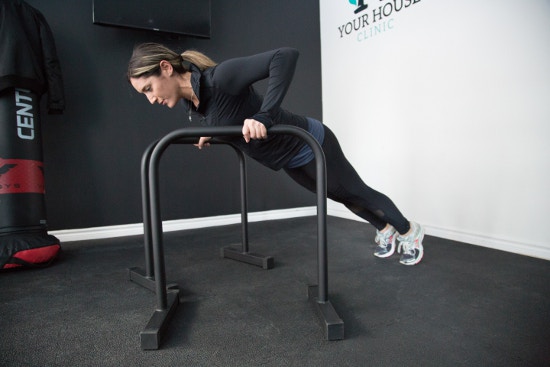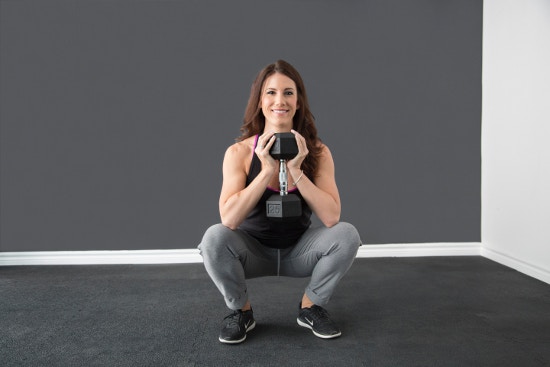Up until this point you might not have even heard of the exercise physiology – and that is totally ok. Many people know or have heard about kinesiology or sports medicine, and those who have heard of exercise physiology often confuse it with either of these two.


However, there are crucial differences between each of these scientific studies that shouldn’t be confused. Moreover, they are all very beneficial for the improvement of our lifestyle.
In the continuation of this text, you will learn what is exercise physiology and which are all of its benefits.
What is exercise physiology?
Exercise physiology is the study within the field of kinesiology which studies the body’s reaction to physical exercise. Because of this, it is often confused with other exercise sciences including kinesiology and sports medicine.
However, there are various differences between these studies which shouldn’t be confused. First of all, kinesiology studies the movement of the human body and it also deals with psychological, behavioral and biological aspects of the movement.
Sports medicine, on the other hand, is a branch of medicine that is concerned with the injuries that happen as a result of exercise, sport, and physical activity. It also helps people diagnose and treat such injuries, and prevent them even.
And finally, we come to the exercise physiology. Physical exercise has a certain effect on different parts of our body such as our hearts, muscles, neurohumoral systems and even on our metabolism. Additionally, exercise physiology as a study addresses these effects in order to understand different kinds of exercises and the benefits they have on our bodies.
Types of exercise physiology
There are two different types of exercise physiology – the sport and clinical exercise physiology.
Sport exercise physiology, as you may have already guessed, is closely related to sports and athletes. It helps develop different types of training regimen such as fitness conditioning. Fitness conditioning, in particular, is the process used to improve an athlete’s physical fitness and performance by a certain exercise training.
Clinical exercise physiology, on the other hand, helps prevent chronic diseases such as cancer, diabetes, osteoporosis through physical activity. It teaches you how to use exercises in order to minimize pain. It can also be used as a treatment for depression and anxiety because exercise is known to reduce stress.
Who is an exercise physiologist?


An exercise physiologist is an individual who is much more than a gym trainer. To become an exercise physiologist, you must have a university degree course in Exercise Physiology and at least some sort of experience.
Exercise physiologists may work in gyms, private practices, clinics and they can also work in the sports medicine research area.
For example, exercise physiologists at Movement 101, know a lot about the human body and the effect the exercise can have on it. They can advise you on a certain rehabilitation program or can recommend a certain course of exercise. However, unlike physiotherapists, exercise physiologists don’t perform massages or treat certain injuries.
Exercise science has gained a lot of popularity in recent years. However, many college students are still confused about certain differences between exercise physiology and other exercise studies. Having a clear picture of what an exercise physiologist does can help them choose the right kind of profession.
What are the benefits of exercise physiology?
1. Learning about your body
Exercise physiology can help you discover and learn about parts of your body you didn’t even think about. It can help you find ways to move your body in the right manner that will be beneficial for your overall wellbeing.
It can even help you use exercise to minimize chronic pain and to relieve the pressure on your joints. It can also help you improve your performance in sports.
2. No manual therapy
Exercise physiologists help you find the right training regimen or they find you the best rehabilitation program. They teach you how to use exercise to manage a certain condition. Basically, you are given the reigns and you have all the control during each session.
3. No medication in exercise physiology
The only medication here would be exercise. Exercise is used as a preventative measure as well as a way to treat and reduce diseases that follow the unhealthy lifestyle. Exercise is medicine.
4. Right exercises
Different types of exercises can help with different kinds of diseases. That’s why finding a good exercise physiologist is always a good idea. They can help you figure out your physical fitness and based on that prescribe you the right kind of exercise.
Whether you are looking to improve your overall health or to treat a certain disease, exercise physiology is exactly what you’ve been looking for.
Exercise physiologists can help you create a training regimen that can help you fight disease with exercises. Or if you’re an athlete, they can help you improve your performance and physical fitness with the right kind of exercise.
Knowing your own body and knowing what it’s trying to tell you is really important. So, start with exercise physiology and learn all the ways in which you can improve your overall being.









